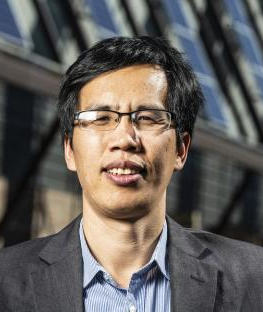Enabling Building Decarbonisation through Energy Innovation and Digital Intelligence
Time
2:00 PM, November 28, 2025 (Beijing)5:00 PM, November 28, 2025 (Sydney)
Contact Us
Email: jbdejournal@sciexplor.comSpeaker

Prof. Zhenjun Ma
Sustainable Buildings Research Centre, University of Wollongong, Wollongong, NSW, Australia.
Professor Zhenjun Ma is the Director (Acting) of the Sustainable Buildings Research Centre at the University of Wollongong, Australia. He is a Fellow of the Australian Institute of Refrigeration, Air Conditioning and Heating (AIRAH) and an Associate Editor of two Elsevier Journals of Solar Energy and Energy for Sustainable Development. His research is mainly focused on building control, building demand flexibility, building big data analytics and low carbon heating and cooling technologies. He is a recipient of several prestigious awards and academic recognition such as an Innovation Award (Energy Efficiency category) from the World Society of Sustainable Energy Technologies; an Australian Endeavour Research Fellowship Award; two Excellence Awards in HVAC&R (Heating, Ventilation, Air Conditioning and Refrigeration) Research from the AIRAH; and an Invitational Fellowship Award from the Japan Society for the Promotion of Science.
Host

Prof. Xing Jin
School of Architecture and Urban Planning, Nanjing University, Nanjing, Jiangsu, China.
Prof. Xing Jin graduated from School of Energy and Environment, Southeast University in 2012. He worked at the School of Architecture, Southeast University from 2012 to 2024, as an assistant professor (2012), associate professor (2015), and full professor (2019). He also studied and worked at ETH Zurich, Switzerland, as a visiting scholar.
Prof. Jin’s research areas include building envelope thermal performance, historical building protection and performance improvement, urban heat island effect and mitigation, building optimization design, and rural residential building energy usage and saving. He got fund supports from the Natural Science Foundation of China, the Natural Science Foundation of Jiangsu Province, the Ministry of Education, and Southeast University. He has published more than 100 papers, and the citations were more than 3,000. He published one English book, and holds 12 patents. He was the World's Top 2% Scientists, the Huaying Scholar, and won the Heatcraft Awards of Professor Anshi Xia Scholarship.
Prof. Jin is one of the directors in the Building Physics Branch of the Architectural Society of China, the Executive Editor of Frontiers of Architectural Research, the Associate Editor of the Journal of Thermal Analysis and Calorimetry and the Journal of Building Design and Environment, and the Editorial Board Member of Buildings, and the International Journal of Sustainable Energy, etc.
Introduction
The growing penetration of intermittent renewable energy sources has intensified the need for enhanced system flexibility to balance dynamic supply and demand conditions. Buildings, as major energy consumers, possess significant potential to contribute to this flexibility and drive the decarbonisation of the built environment. This presentation examines how energy innovation, particularly through solar and thermal storage systems, combined with digital intelligence, can be leveraged to accelerate building demand flexibility and support grid optimisation. By integrating intelligent control and real-time optimisation, buildings can evolve from passive energy consumers into active participants in demand-side management, strengthening system resilience and advancing the transition toward a sustainable, low-carbon energy future.Presentation
Presentation
15



